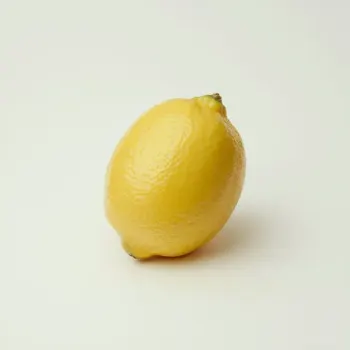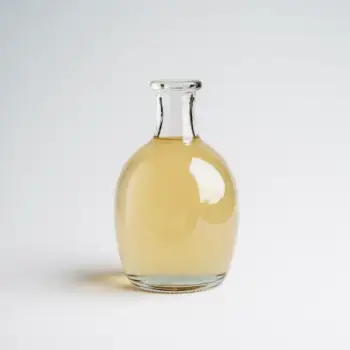Lemon and white vinegar differ in cooking uses, with lemon adding a fresh citrus flavor and zest to dishes, while white vinegar offers a sharp tang without fruitiness. They're versatile in dressings, marinades, and baking, but their distinct tastes affect the flavor profiles when substituted for one another.

Lemon is a vibrant, tart fruit from the Citrus limon tree, commonly used for its juice, zest, and as a natural flavor enhancer in various dishes, ranging from savory to sweet. It adds a fresh, citrusy aroma and can provide a delicate or pronounced sourness depending on the quantity used.

White vinegar, also known as distilled vinegar, is a clear solution typically made from fermenting grain alcohol. It has a clean, sharp flavor and is often used as a preservative, in pickling, and as a versatile cleaning agent. In cooking, it provides acidity and tanginess to dishes.
While both lemon and white vinegar are used to add acidity to dishes, lemons have a fresh, citrusy flavor profile, whereas white vinegar is more pungent and lacks the fruitiness. Lemon also contributes a fragrant zest and is less acidic than white vinegar. The source of their acidity differs, with lemons providing citric acid and white vinegar offering acetic acid.

Your ultimate Recipe Box, Meal Planner, and Cooking Class all in one
Lemon juice is ideal for vinaigrettes or dressings where a light, fresh flavor is desired. It pairs well with olive oil and herbs. Expect a bright and zesty flavor that can enhance the taste of greens and vegetables. Tip: Use freshly squeezed lemon juice for the best flavor. White vinegar is suitable for more robust dressings, often mixed with mustard or mayonnaise. It provides a tangy flavor that can stand up to stronger ingredients. Tip: Start with a small amount and adjust to taste, as it can be overpowering.
Lemon zest and juice are often used in baking to add a citrus note to cakes, cookies, and pastries. They can also act as a natural leavening agent in combination with baking soda. Expect a subtle tanginess and aroma. Tip: Lemon zest can be added to the sugar for a more infused flavor. White vinegar is used to react with baking soda as a leavening agent in cakes and bread without adding flavor. It can also sour milk to create a homemade buttermilk substitute. Tip: Measure carefully to avoid affecting the taste of the baked goods.
Lemon juice is great for seafood and chicken marinades, tenderizing the meat while adding a fresh flavor. Expect a light and zesty taste. Tip: Combine lemon juice with herbs and garlic to create a flavorful marinade. White vinegar is strong and can be used in meat marinades to tenderize tougher cuts. It can be tempered with sugar, herbs, and spices. Tip: Due to its strength, marinate for a shorter time to prevent the meat from becoming too soft.
Lemon is rich in vitamin C and contains flavonoids, while white vinegar has few vitamins but can aid in digestion.
| Nutrient | Lemon ( per 100g ) | White Vinegar ( per 100g ) |
|---|---|---|
| Fat | 0.3g | 0g |
| Calcium | 26mg | 4mg |
| Protein | 1.1g | 0g |
| Calories | 29 | 18 |
| Vitamin C | 53mg | 0mg |
| Carbohydrates | 9.3g | 0.04g |
Yes, but the dish will have a different flavor profile without the citrus notes of lemon.
It depends on personal preference and the type of salad. Lemon juice is better for light and fresh dressings, while white vinegar is suitable for stronger, more acidic dressings.
Yes, white vinegar is an effective meat tenderizer due to its acetic acid content.
Yes, white vinegar typically has a higher acidity level than lemon juice.
You can use white vinegar for its leavening properties, but it won't impart lemon flavor to the cake. Use lemon zest or extract for flavor.